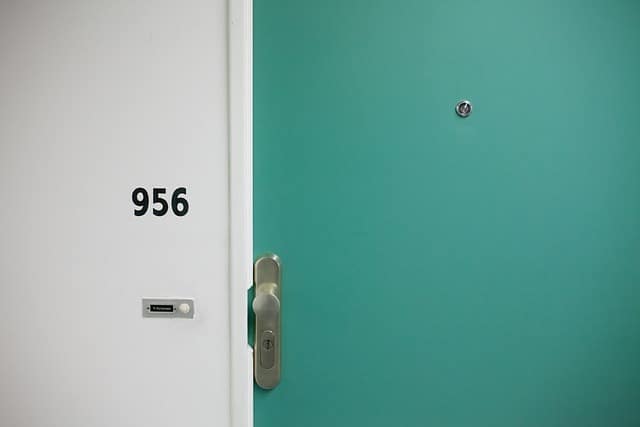In the Dominican Republic, the caution deposit (often referred to as a “depósito de garantía” or “depósito de seguridad”) for long-term rentals works similarly to other countries but with some local nuances. This deposit serves as financial protection for landlords, covering any damages or unpaid bills when tenants move out. Here’s how it generally works:
1. Deposit Amount
- Common Practice: Typically, landlords ask for the equivalent of one to two months’ rent as a security deposit. However, some landlords may ask for more, depending on the property type and the agreement.
- First and Last Month’s Rent: In many cases, landlords may also require tenants to pay the first and last month’s rent upfront in addition to the security deposit.
2. Use of the Deposit
- The security deposit is held by the landlord during the rental period and can only be used to cover specific costs such as:
- Unpaid rent.
- Property damages beyond normal wear and tear.
- Unpaid utility bills (if applicable under the lease).
- If no damages occur and all rent is paid, the deposit should be returned to the tenant in full at the end of the lease.
3. Return of the Deposit
- Legal Requirement: Under Dominican law, there is no formal timeframe for when the deposit should be returned, but in practice, it’s generally returned within 30 days after the tenant vacates the property, provided there are no outstanding issues.
- Inspection: The landlord usually conducts a property inspection after the tenant moves out to check for damages or other potential deductions from the deposit.
4. Legal Protection and Disputes
- Lease Agreement: The rental agreement should clearly state the amount of the deposit and the conditions under which it can be withheld or returned. It’s advisable to ensure that the lease is formalized in writing, and both parties should retain a copy.
- Legal Recourse: If there is a dispute over the deposit, tenants can seek legal advice, although disputes over security deposits are generally resolved between the tenant and landlord.
5. Best Practices for Tenants
- Document Condition: Before moving in, it’s a good idea to document the condition of the property (photos or video) and ensure that any pre-existing damage is noted in the lease agreement.
- Request Receipts: Always ask for a receipt when you pay the deposit to have proof of the payment.
- Clear Communication: Clarify any specific terms regarding the deposit, such as deductions, before signing the lease.
Banco Agricola
In the Dominican Republic, a security deposit at Banco Agrícola is a common requirement for long-term rentals. It refers to a legal measure wherein landlords deposit the security amount provided by the tenant in Banco Agrícola instead of keeping it themselves. This system provides a degree of protection to tenants, ensuring that the deposit is not mishandled by landlords and is available for legitimate claims.
Here’s how it typically works:
1. Purpose of the Deposit in Banco Agrícola:
- According to Dominican law, particularly under Law 4314, landlords renting property are required to deposit the tenant’s security deposit in Banco Agrícola, the country’s public agricultural bank. This law was created to protect tenants from losing their deposits unfairly and ensure the money is available at the end of the rental period.
2. How the Deposit Works:
- Deposit by Landlord: Once the tenant pays the security deposit, the landlord is supposed to deposit this amount into a designated account at Banco Agrícola. The deposit is held there for the duration of the lease.
- Interest Accrual: The deposit may generate interest, which, according to the law, belongs to the tenant.
- Return of the Deposit: At the end of the rental agreement, provided the tenant has met all obligations (rent, no damages, etc.), the landlord must return the deposit. The tenant can claim it from Banco Agrícola upon receiving authorization from the landlord.
3. Challenges and Enforcement:
- While the law mandates that security deposits be deposited in Banco Agrícola, in practice, not all landlords comply with this regulation. Some prefer to hold the deposit themselves. Tenants who want to ensure this procedure is followed should ask for proof that the deposit has been made in Banco Agrícola.
- Legal Recourse: If the deposit is not returned or if the landlord fails to deposit it in the bank, tenants can take legal action to claim their money. They can use the lease agreement and any receipts as proof of the deposit.
4. Advantages for Tenants:
- Legal Protection: Depositing the security amount with Banco Agrícola ensures transparency and fairness, as the deposit remains safeguarded under the bank’s management.
- Accrued Interest: Tenants can benefit from the interest earned on the deposit, which landlords cannot claim.
References for Further Reading:
- DR1 Real Estate Forum: A popular resource for expatriates and locals discussing real estate, rental experiences, and legal issues in the Dominican Republic.
- You can refer to Banco Agrícola’s official website for more details about their services.
- Living in Santo Domingo: A comprehensive guide with information on renting and legal aspects related to deposits.
- Abogados en República Dominicana: A legal advice platform where you can consult local lawyers about rental agreements and disputes.
Having a well-drafted lease and keeping documentation of all payments is key to protecting both the landlord and tenant in the Dominican Republic’s rental market.



